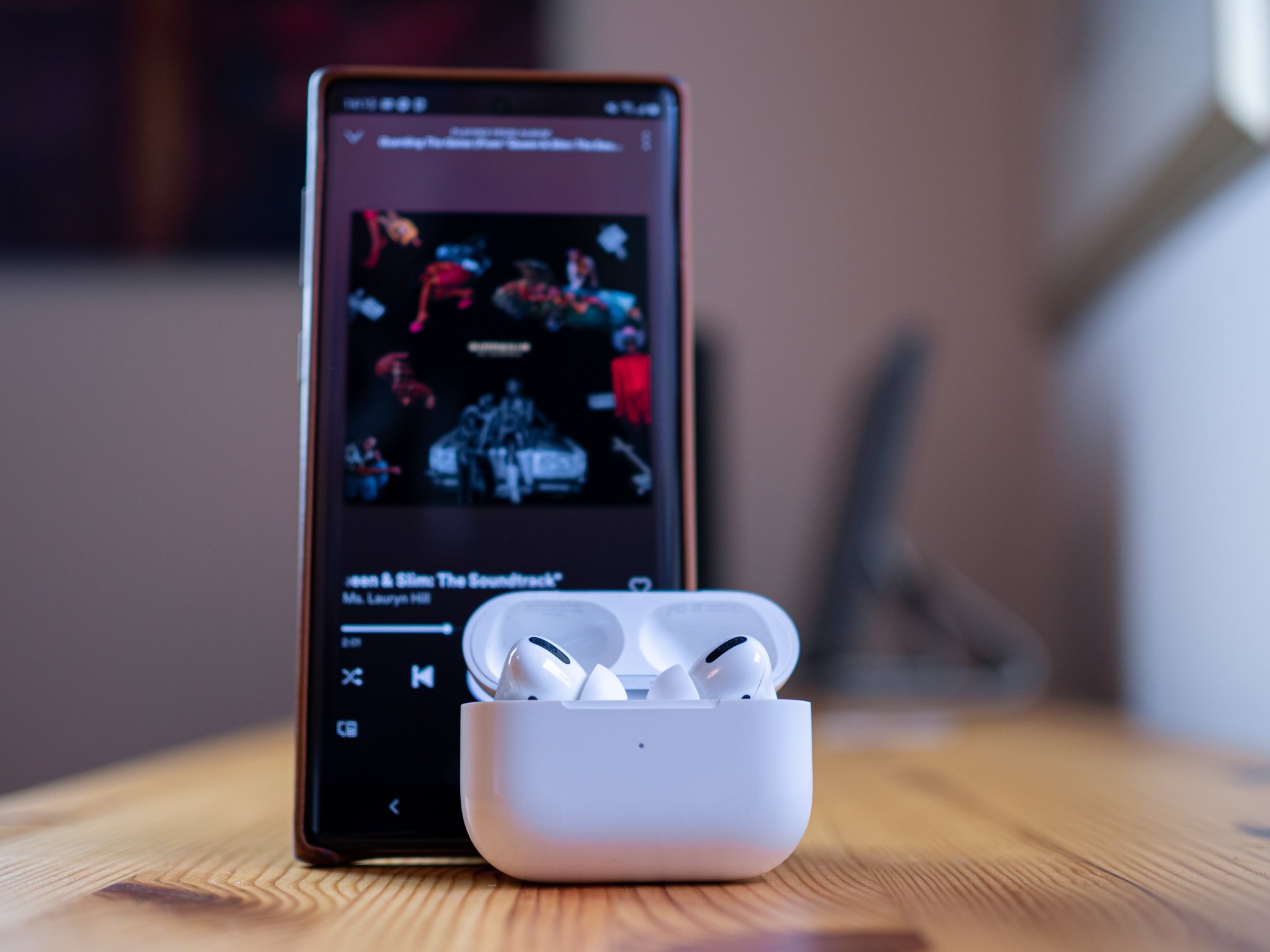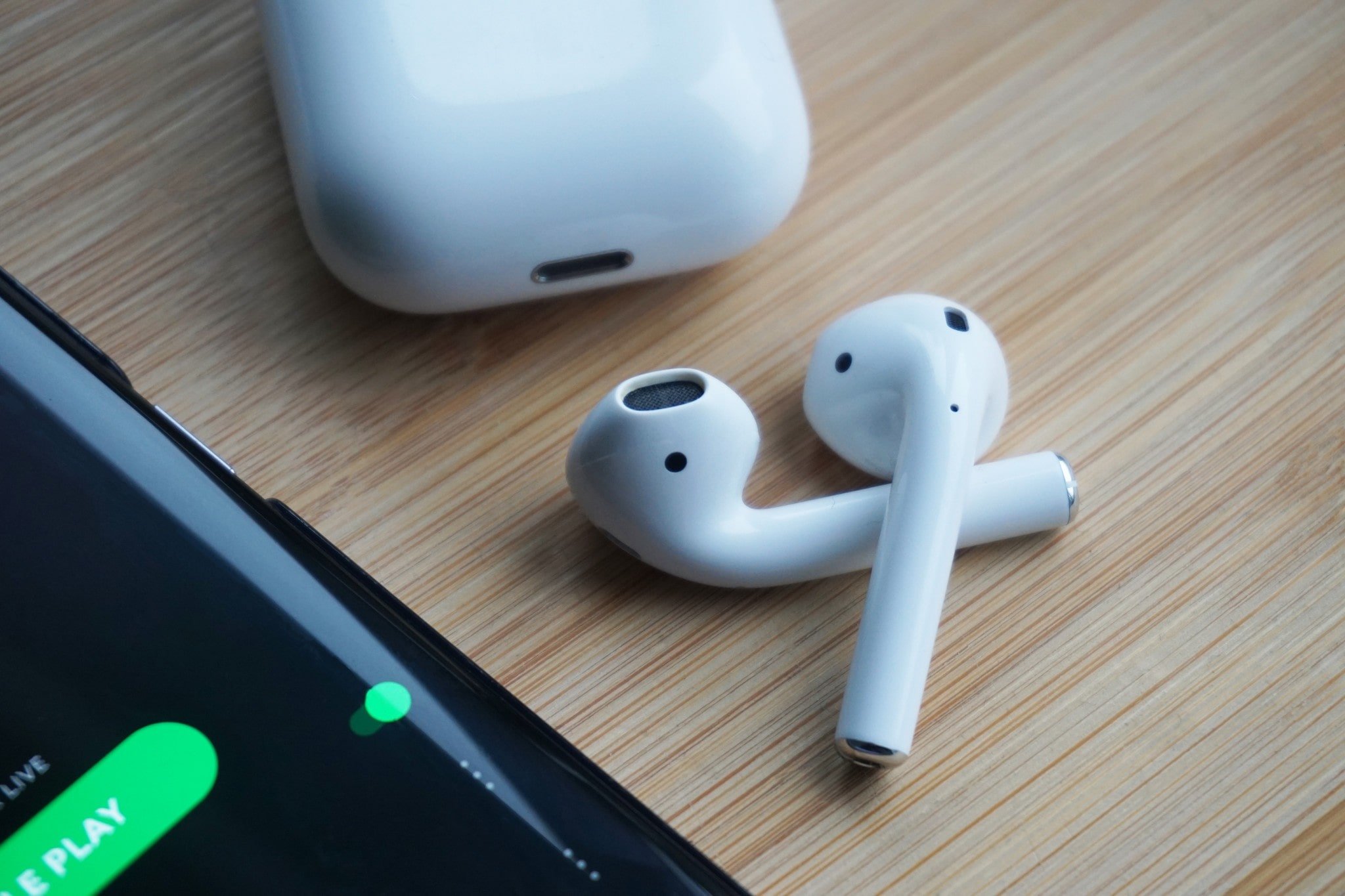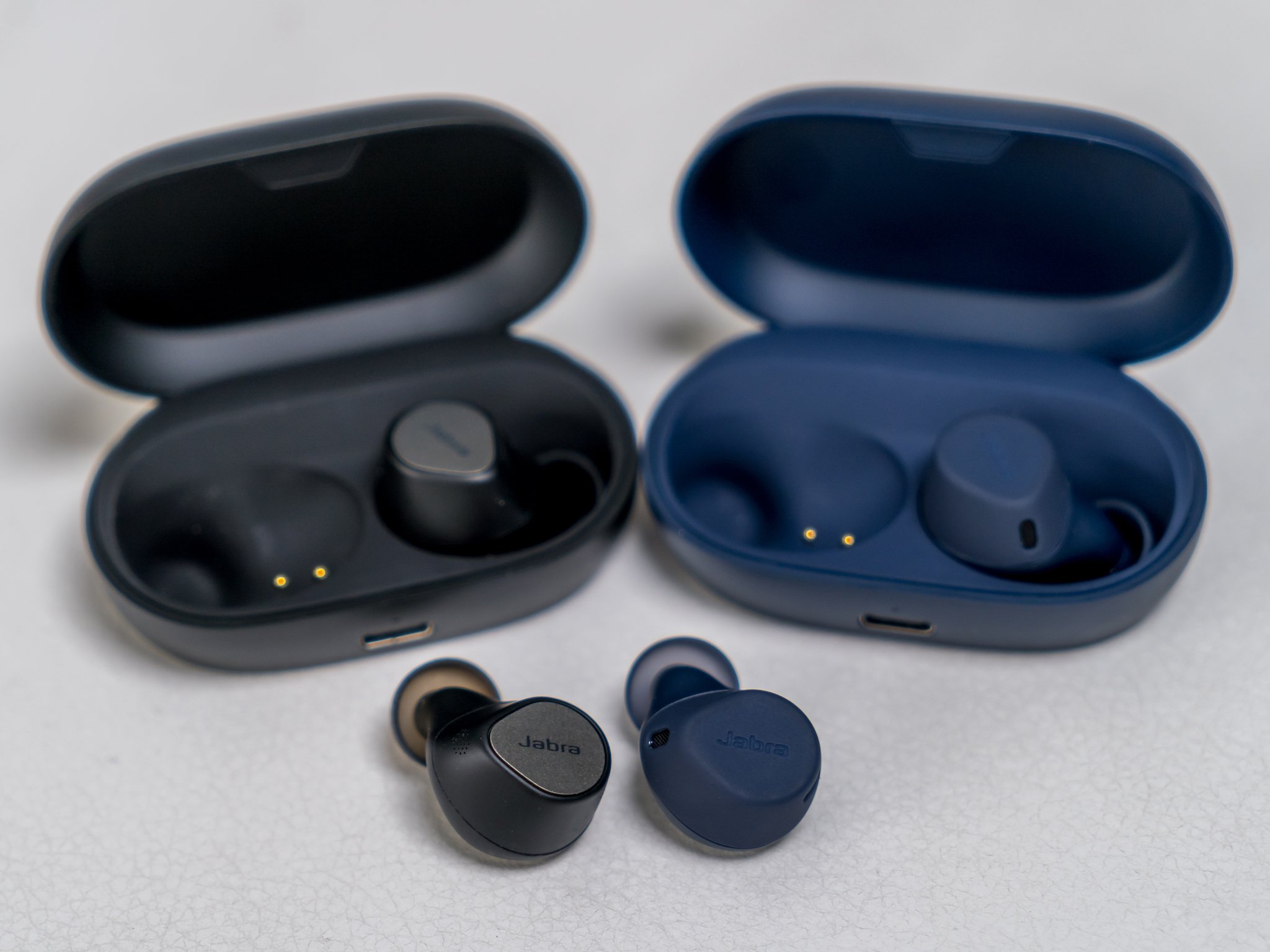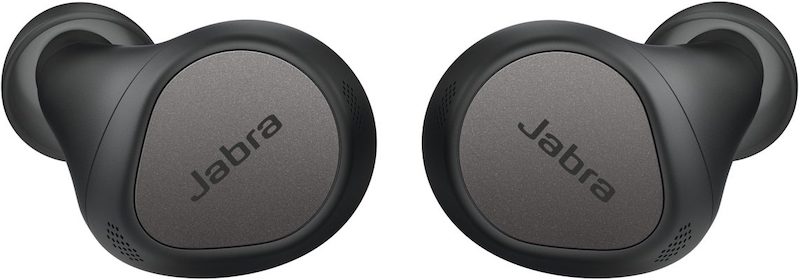Are AirPods the best choice for Android users? Let's find out!
Best answer: AirPods technically work with Android phones, but compared to using them with an iPhone, the experience is significantly watered-down. From missing features to losing access to important settings, you're better off with another pair of wireless earbuds.
The perks of using AirPods with an Android phoneThis is a multi-faceted question, so let's start with the positives. Whether you get AirPods or AirPods Pro, they both act as regular Bluetooth earbuds when used with an Android phone. You put them into pairing mode, select them from your list of Bluetooth devices, and you can start using them as you would any other wireless headphones/earbuds.
You'll get the same sound quality and battery life that you get with an iPhone, meaning the core experience is mostly the same. Put the AirPods in your ears, pick a song or podcast to listen to, and you can enjoy your audio wherever you go.
The regular AirPods, be it the AirPods 2 or AirPods 3, are fairly basic earbuds with a one-size-fits-all design that works just fine for some people, whereas others have difficulty getting a comfortable fit with them. AirPods Pro offer customizable ear tips to ensure you get a snug fit, along with improved audio and active noise cancellation (ANC).
Apple's Spatial Audio feature has since translated over to Android devices in much the same way it works on iOS devices with the AirPods 3, AirPods Pro, and AirPods Max, by way of a beta on the Apple Music Android app. This lets you use either of those AirPods to listen to thousands of tracks on Apple's streaming service in a 360-degree spatial audio effect.
And as vain as it may sound, there's just something about owning and using AirPods. Everyone knows what they are. They're instantly recognizable as an Apple product. Some people may like having that brand associated with them even if they prefer Android over an iPhone.
Where the AirPod and Android relationship falls apartUsing AirPods with an Android phone is a fine experience, but you, unfortunately, lose a lot of what makes them feel so seamless with iOS devices and Macs. This is because Apple designed the AirPods to primarily work with an iPhone, and it is readily apparent once you realize how stripped down the experience really is when they're connected to something other than an Apple device.
For starters, you don't get the automatic pairing feature that made AirPods so iconic in the first place. When you open a case of AirPods near your iPhone, iOS automatically recognizes and pairs them instantly. This feature doesn't work at all on Android, meaning you need to manually pair AirPods with your device every single time you use them. On its own, this is reason enough to ignore AirPods as an Android user. As noted in our AirPods Pro review:
The AirPods Pro don't seamlessly switch between Android devices as they do on iOS, nor do they have any customization; they're just dumb Bluetooth earbuds.
The fit and comfort is another issue. The regular AirPods use an open-fit design rather than ear tips, leaving less wiggle room to get a better seal. Only the AirPods Pro use ear tips, which is one reason why bass response is better on those earbuds. Without the tips, the regular AirPods don't offer much recourse if you find them to be uncomfortable or too "lossy" in letting too much ambient sound in.
There's also the fact AirPods charge via Apple's Lightning cable, a type of cable that most Android users likely don't deal with at all. Sure, you get a Lightning cable included in the box with your AirPods, but that means having another cable type to deal with for just one device. Apple opted to keep Lightning around when it launched the AirPods 3, its most recent pair of earbuds.
If we're looking at AirPods Pro, specifically, you're going to miss out on the auto-pause/play feature that stops and starts music automatically when you take AirPods in and out of your ears. A super handy feature to have, but if you use AirPods Pro with an Android phone, it just doesn't work at all.
AirPods are popular, but there are tons of other options out thereThis is all made worse for AirPods when you consider something else - all of the best wireless earbuds that exist for Android users have the AirPods among the first catalysts for truly wireless buds. Since their initial release, company after company has released its own take on the form factor. Some have been bad, though plenty others are outstanding.
They've even spurred a wide range of cheap AirPods clones. The best ones are more than just shameless ripoffs, like the Anker Soundcore Liberty Air 2 Pro, which prove to be superb alternatives. They not only sound better than the regular AirPods, but the overall performance also stands up really well against the AirPods Pro. They don't offer any additional durability or water resistance, though they sound good and have excellent app support to enhance that sound further. Plus, they work the same whether you have an Android phone or an iPhone.
If you're looking for something a bit more premium, check out the Jabra Elite 7 Pro or Galaxy Buds Pro. Both sound excellent, have ANC, reliable battery life, and come with tons of useful software features through their respective apps available for Android and iOS.
AirPods and AirPods Pro are solid earbuds in their own right, and when used with an iPhone, they offer a user experience that you just can't get anywhere else. Except when you strip those iPhone-exclusive goodies away, they're not all that special. You can spend the same or less money for vastly better earbuds in most regards, and if you use Android, it just makes sense to go with any one of those many alternatives.
Better than AirPodsJabra Elite 7 Pro$200 at Amazon$200 at Best Buy
Android's answer to Apple's buds
The Jabra Elite 7 Pro check just about all of the boxes for high-quality earbuds. Comfortable and easy to wear, with great audio quality and solid battery life, they're easy to take with you wherever you go. The Elite 7 Pro get even better when you factor in call quality and the Sound+ companion app, which you can use to change your EQ settings, enable/disable active noise canceling, and find your earbuds if you happen to lose them.




